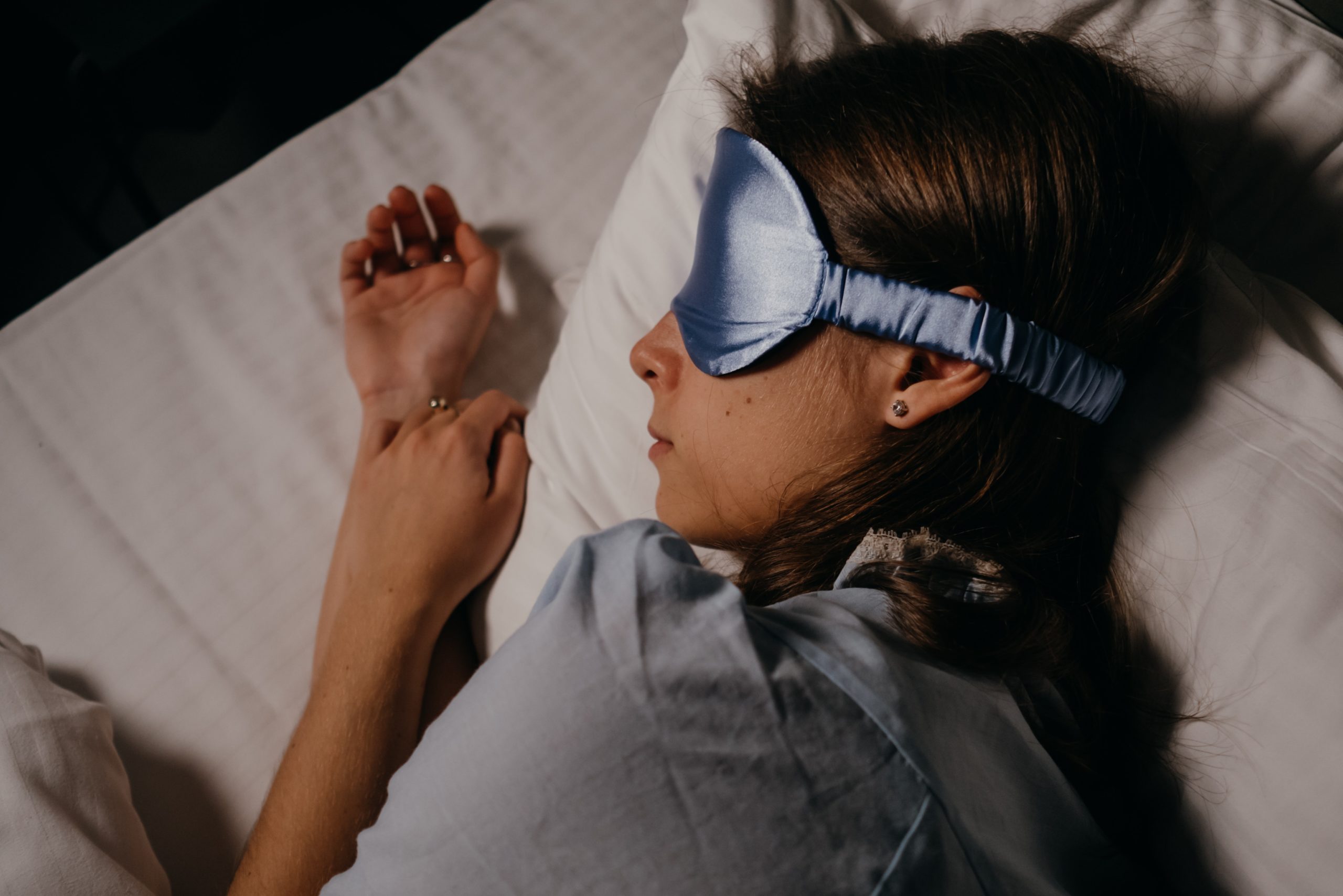Diabetes and Sleep: Finding the Right Balance

Last Updated on December 5, 2021
Sleep plays a vital role in our overall health and wellbeing. Anyone that starts losing sleep can suffer both mentally and physically. However, certain individuals with pre-existing conditions are even more at risk of suffering when they don’t get enough sleep.
Good sleep is especially important for those with diabetes. Unfortunately, not only must they get enough sleep to stay healthy, but they are also more prone to certain sleep disorders and bad sleep habits because they have diabetes. This can make getting quality sleep even more of a challenge.
Though many think that diabetes is mainly affected by what an individual consumes, such as the foods they eat and what they drink, other factors play a part and can make their condition worse—and sleep is one of those factors. Individuals with diabetes must work on building better sleep habits if they want to keep their condition under control.
How Sleep Affects Diabetes Management
Living a balanced lifestyle and getting enough sleep may seem like a challenge, especially when you feel like you have a million different things to juggle. Unfortunately, a lack of sleep over time can increase your risk of developing heart disease, obesity, depression, and type 2 diabetes. And those already diagnosed with diabetes are even more at risk of further complicating their condition.
For individuals with diabetes, a lack of sleep can negatively impact their ability to adequately manage their condition. For example, poor sleep can affect how much food you consume and what foods you choose to eat, in addition to impacting the way your body responds to insulin. Poor sleep also affects your mental health, something that those with diabetes already struggle with.

Complications That Arise From Sleep Deprivation
Getting enough rest is crucial to the health and wellbeing of people with diabetes. They must keep their bodies regulated to manage their condition, and losing sleep can easily throw anyone’s body off balance. While the exact number can vary from one person to the next, adults—especially those with diabetes—should get around 7 hours of sleep a night to avoid the adverse side effects of losing sleep.
Without good sleep, people with diabetes can struggle with the following issues and complications:
Develop insulin resistance Increase blood pressure Feel hungrier, which can lead to poor eating h
abits Struggle to lose weight A weakened immune system Increase the risk of depression and anxiety
Sleep Problems and Disorders That Affect Those With Type 2 Diabetes
In addition to a lack of sleep making diabetes management more challenging, people with type 2 diabetes specifically are prone to developing sleep problems and disorders, which only exacerbate the issue of getting enough sleep. Lack of sleep is not the only problem, however. Some people with diabetes may also sleep too much because of a lack of energy.
Older adults with diabetes are even more at risk of developing complications from poor sleep, as our sleep habits get worse as we age. When we get older, it becomes more difficult to fall asleep and stay asleep, which means our quality of sleep goes down. This puts older adults at a higher risk of developing sleep disorders, especially those with diabetes.

Some common sleep problems and disorders that people with diabetes can struggle with—particularly those with type 2—include:
Sleep Apnea: Sleep apnea occurs when there is a breathing disruption during sleep due to an obstruction in the upper airway. These moments when you stop breathing are called apneas and can result in low blood and oxygen levels, which affect the brain and heart. Sleep apnea has been found to increase a person’s chances of developing diabetes as well as increasing insulin resistance in those that already have it. Insomnia: Insomnia occurs when someone struggles to fall asleep and stay asleep. Those with this condition tend to have restless sleep throughout the night, hindering them from falling into REM. REM occurs when a person is in a deep sleep, and it is necessary to get good, quality sleep. As mentioned above, poor sleep habits can complicate diabetes management and severely impact your physical and mental wellbeing. Peripheral Neuropathy: Peripheral neuropathy is when a person suffers damage to the nerves in their feet and legs. People with type 2 diabetes are prone to this condition. While peripheral neuropathy is not a sleep disorder on its own, it can make it difficult for someone with diabetes to get a good night’s rest as it makes them uncomfortable, which keeps them from falling and staying asleep. Circadian Rhythm Disorders: Circadian rhythm disorders occur when there is a disruption in the sleep-wake cycle. Your circadian rhythm is like your internal body clock that controls your sleep schedule. Individuals with diabetes who struggle to get adequate sleep over time can develop disorders like this one, further complicating their situation. Poor sleep is one thing, but it is much harder to get back on track once you develop an actual sleep disorder. Restless Leg Syndrome: Restless leg syndrome is a sleep disorder that results in an intense and irresistible urge to move your legs while lying in bed. People with type 2 diabetes are at an increased risk of developing this disorder. Those with restless leg syndrome can develop pain, pulling, and tingling sensations in their legs, making it difficult to fall and stay asleep.
Tips For Getting Better Sleep With Diabetes
Everyone, no matter their age or physical condition, should practice healthy sleep habits. It is essential if we want to avoid developing conditions like heart disease and diabetes later in life. However, those with diabetes must take extra care to get good sleep as it can increase their chances of developing sleep disorders which can impact their ability to keep their diabetes under control.
Tips for getting a good night rest include:
Practice going to bed and waking up at the same time every day. Create a bedroom environment that is cool, dark, and relaxing. Avoid using digital devices before bed, including TVs, computers, tablets, and smartphones. Try getting in more physical activity during the day. Practice mindfulness to help you mentally unwind and reduce stress and anxiety. Examples include yoga, meditation, breathing exercises, and journaling. Only get into bed when you’re tired. Avoid alcohol and caffeine before bed. Avoid larger meals late at night as they can increase blood sugar while you sleep.

Conclusion
If you have diabetes and struggle with your sleep habits, you can always reach out for help. Try using the tips above first, but if you still find you are having difficulty, you may need to talk to your doctor or a sleep expert. Getting a good night’s rest can be more challenging for someone with diabetes, but getting your sleep habits back under control is not impossible. These days especially, help for diabetes management is much more accessible with things like telemedicine.
If your poor sleep habits are affecting your health, there is no excuse not to get the help you need. Letting your sleep get out of control can quickly lead your mental and physical health spiraling out of control, which is especially detrimental for those with diabetes. The better sleep you get, the easier it is to manage your diabetes and live a happier and healthier life






